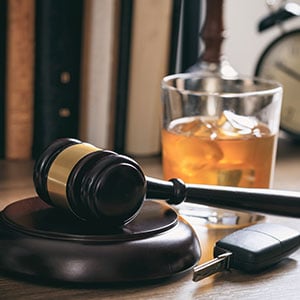
If you're facing charges for an OUI, you might wonder what penalties are in your future. Ahead of you lay two different processes: A criminal procedure, and an administrative procedure. For the purposes of this post, I am going to focus on the criminal procedure. The severity of the charges against you will depend upon many different factors. The circumstances of your OUI may aggravate your penalties. Additionally, whether or not this is your first offense will help determine whether you face a misdemeanor or a felony. How Bad Is My OUI? The State of Maine takes OUIs very seriously. You could be looking at jail, fines and a suspension of your license. What effects the punishment that you could be looking at? It's your first offense It's your first offense, but you refused to comply with a test It's your first offense, but it was an aggravated OUI (examples: you had an underage passenger, you were criminal speeding, you were eluding police or your blood alcohol level was very high). The penalties and charges…Read More

Will Your Keto Diet Interfere With A Bac Test? If you're trying to watch your weight or manage other health symptoms, you might be familiar with the Keto diet. Based primarily on the idea that a low-carb, high-protein, high-fat diet can help you lose weight quickly, the Keto diet is popular—and problematic. Following a strict Keto diet can cause your body to go into a specific state (called ketosis) that may fool breathalyzers into thinking that your blood alcohol level (or BAC) is raised when it really isn't. If you're stopped for a BAC test and you're in ketosis, you might be in for a difficult time. What Is Ketosis - And Why Could It Influence Your Bac? When you're in ketosis, you're likely not consuming many carbohydrates. Carbohydrates generally constitute your body's primary energy source. After depriving your body of its normal fuel, your body begins to burn through your existing fat stores in order to go about your day. When your body metabolizes fat in the liver, your body produces ketones - chemical…Read More
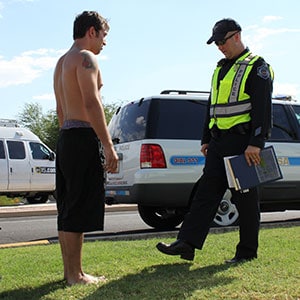
If you've made it safely to the other side of an OUI experience, you may feel relieved. It's over; it's in the past; you can move on with your life. Before you can truly move on, however, you may need to disclose information about your arrest. You also may not. It's time to figure out who you should tell about your OUI - and what details to focus on when you're having those conversations. Here's What You Need To Know: Begin by determining your obligation to disclose. Your feelings of personal guilt and sense of obligation might lead you to believe that you need to be frank with your family, your employer, and your community. This might not be the best idea. Remember that an OUI Arrest represents criminal action. Spreading the word about your record may not be in your best interest - particularly for your professional reputation. Before you decide to tell anyone, determine if there is anyone that you must tell. Many employers and schools will have conditions that arrests or criminal…Read More

So, you just received a phone call from the police, what should you do next? I see this situation come up fairly often and it usually results in one of three outcomes: outcome 1 is that you talk to the police and it is something minor and nothing comes of it; outcome 2 is that you talk to the police and unwittingly confess to a crime and make your life dramatically worse in the process; outcome 3 is that you call a lawyer and they determine whether you are dealing with outcome 1 or outcome 2 for you, so that you don't mess up your life. If you're not into lengthy explanations, outcome 3 is always the correct way to go. Police do not exist to help you. They exist to do police work. And I am not anti-police by any means, but again, they aren't out to help you. Often police work means investigating crimes and zeroing in on suspects. If you get a call from police, there is a very good chance that…Read More

Many people charged with crimes wonder whether their case will automatically be dismissed because the police officer did not read them their Miranda rights. While Miranda warnings are extremely important, an officer's failure to read them in and of itself does not result in a dismissal of criminal charges. Simply put, Miranda warnings themselves are not constitutional rights; rather, they are safeguards against the Fifth Amendment privilege against self-incrimination. What does this mean? The Fifth Amendment to the United States Constitution provides that no person "shall be compelled in any criminal case to be a witness against himself." This means the individual has the right to remain silent while being questioned in custody and is not required to give statements to law enforcement or testify in a criminal proceeding. Miranda warnings ensure the individual is aware of this constitutional right. Miranda rights or Miranda warnings get their name from the 1966 United States Supreme Court case, Miranda v. Arizona. In that case, the Supreme Court held the United States Constitution's Fifth Amendment prohibition against self-incrimination applies to an individual who is in police custody. In order to safeguard…Read More

One of the most common questions that I get is "but I'm guilty, what can you do?" The phrase "but I'm guilty," could be the subject of an entire legal textbook but the short answer is that no one is guilty before they've even been to Court. Every individual is presumed innocent of any criminal charges. It is the State's responsibility to prove each and every element of each offense beyond a reasonable doubt before anyone can be found guilty. An experienced defense attorney should be able to review your case and identify the areas where the State may have trouble proving guilt beyond a reasonable doubt. There are also many steps a defense attorney can take during the legal process to shape the outcome and ultimately reach a better result than what originally seemed possible. This is by no means an exhaustive list but here are some of the most common issues that I see in OUI cases. 1. Improper Stop By Police The U.S. Constitution prohibits police from arbitrarily stopping or pulling over…Read More
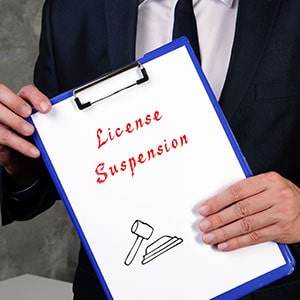
Getting charged with an OUI is always a serious situation. But that situation can be even more consequential if you're charged with an OUI while operating a commercial vehicle. In fact, people who operate commercial vehicles are often held to a higher standard than average drivers. Many states have modeled their standards after the Federal Motor Carrier Safety Administration (FMCSA) and set a 0.04 blood alcohol limit for commercial drivers. Some states also have a rule that commercial drivers cannot operate a vehicle within four hours of consuming alcohol. Commercial drivers could even be subjected to alcohol testing after an accident if there is the suspicion that the driver was under the influence. Not only could you be putting your safety and driver's license at risk, but you could ruin your current career and any future opportunities. Keep reading to learn happens if you're charged with an OUI while driving a commercial vehicle. You Must Notify Your Employer In most states, if you hold a CDL and are convicted of any traffic offense other than…Read More
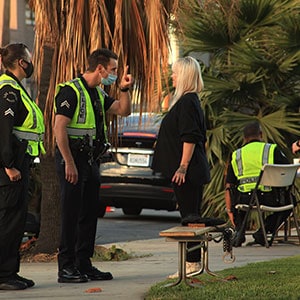
Most people are familiar with field sobriety tests. At the very least, the concept of “walking a straight line” to demonstrate that you are sober is familiar to most. These standardized field sobriety tests are used across the country by law enforcement to identify intoxicated drivers. These same officers testify in court regarding the results of these sobriety tests as part of the state's case. There is one problem, though: these tests are completely unreliable. If you have been stopped under suspicion of an OUI in Maine, the police will likely pressure you to perform these sobriety tests. A thorough understanding of the unreliability of these tests could benefit you. If you are arrested based in part on your performance on field sobriety tests, attorney William H. Ashe could help you defend yourself against those allegations. Understanding Field Sobriety Tests Standardized field sobriety tests have been commonplace among law enforcement officers since the 1970s. However, they were designed not by scientists but by police officers with no medical training. These tests were allegedly designed to…Read More
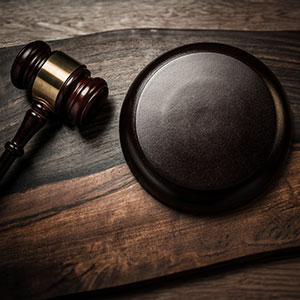
A charge for operating under the influence, or OUI, can carry steep penalties. Depending on prior convictions and other circumstances, a conviction can lead to jail or even prison if a felony OUI. Incarceration is not the only penalty prescribed by state law: steep fines and the suspension of your driving privileges are also standard punishment. These statutory penalties can have a life-changing effect on your life and your freedom, but they are only some of the consequences that come with an OUI conviction. In addition to statutory penalties, you could also face collateral consequences that you never expected. While these penalties are not written into the law, they are nevertheless significant. Here are three collateral consequences of an OUI conviction you may not be familiar with. Difficulty Obtaining Housing An OUI conviction – like any criminal conviction – will be reflected on your permanent criminal record. While a criminal record can cause a host of problems, one unexpected challenge is a problem finding adequate housing. Now more than ever, landlords and property management companies…Read More

In Maine, law enforcement cannot simply pull over your car and detain you on a whim. To stop your vehicle, the officer must have a reasonable articulable suspicion that you are violating law or traffic regulation to pull you over. Any officer that stops your car without reasonable articulable suspicion has violated your constitutional rights. This violation could have a profound impact on your case if you are ultimately arrested. In many cases, your attorney could have evidence against you suppressed, or even have your case dismissed entirely. Reasonable articulable suspicion is a common factor in operating under the influence (OUI) cases. But what constitutes reasonable articulable suspicion in a Maine traffic stop? Reasonable Articulable Suspicion Explained Reasonable articulable suspicion is closely related to another legal standard known as probable cause. Probable cause is the high standard police officers must meet before they can search a vehicle or arrest a suspect. Reasonable articulable suspicion is a lower standard than probable cause. Reasonable articulable suspicion is the belief by a reasonable person that the suspect violated…Read More